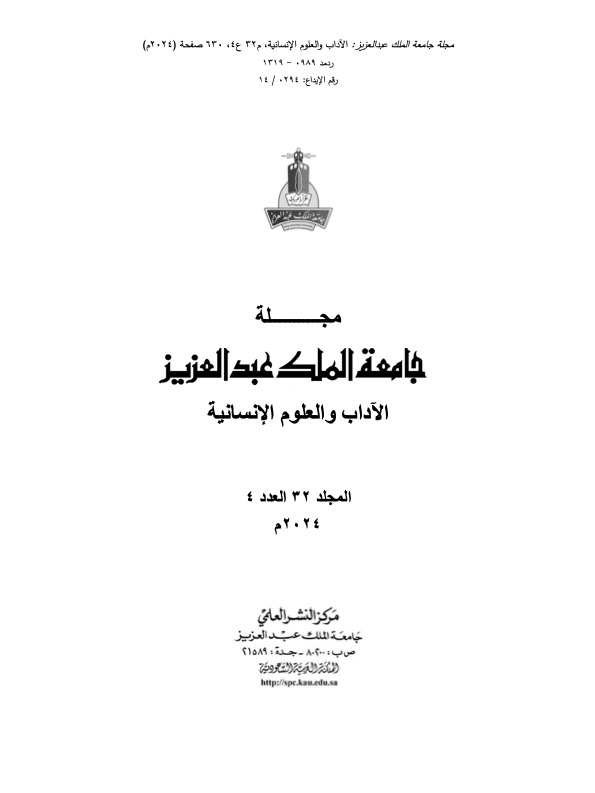رسالة في المشاكلة للعلامة سري الدين؛ محمد بن إبراهيم الدَّرُوري، المعروف بابن الصائغ (-1066ه)، دراسة وتحقيقًا.
محتوى المقالة الرئيسي
الملخص
رسالة في المشاكلة للعلامة سري الدين؛ محمد بن إبراهيم الدَّرُوري، المعروف بابن الصائغ (-1066هـ)، دراسة وتحقيقًا.
ملخّص البحث
قام هذا البحث على دراسة وتحقيق رسالة سري الدين الدَّرُوري في المشاكلة (-1066ه)، وهي رسالة بلاغية مهمة تعالج ظاهرة بديعية تَظْهَرُ في مختلف النصوص والشواهد، وذلك بالعرض والمناقشة، ودعمها بأقوال العلماء المعتبرين في فنهم. وقد اعتمدت في دراستها وتحقيقها المنهج العلمي المتبع في علم التحقيق.
وانتظم عِقْدُ هذا البحث في مقدمة، وقسمين، وقائمةٍ بالمصادر والمراجع.
فاحتوَت المقدمة على بيان أهمية البحث وأسبابه، وأهدافه، ومنهجه، وخطَّته، والدراسات السابقة.
ويشمل البحث قسمين؛ الأول: قسم الدراسة، وفيه الآتي:
المبحث الأول: دراسة عن سري الدين الدَّرُوري (اسمه ونسبه ومولده ووفاته، ونشأته وحياته العلمية، وشيوخه وتلاميذه، ومكانته العلمية وأقوال العلماء فيه، ومؤلفاته العلمية).
المبحث الثاني: تعريف بالمخطوط/ رسالة المشاكلة (تحقيق عنوان المخطوط، ونسبته إلى مؤلفه، ووصف النسخ، ونماذج منها، ومصادر المؤلف، وقيمة الرسالة العلمية).
أما القسم الثاني: تحقيق نص رسالة سري الدين الدَّرُوري في المشاكلة، مع الإضافة والتعليق لما يتطلب إلى ذلك.
وتميزت رسالة سري الدين الدَّرُوري في المشاكلة بذكر أقوال العلماء فيها مشفوعة بأدلتها، واستدراكه وتعقبه عليها، وترجيحه لأحدها، وردّه بعضها بالحجة والبرهان.
الكلمات المفتاحية: رسالة، المشاكلة، الدَّرُوري، ابن الصائغ.

